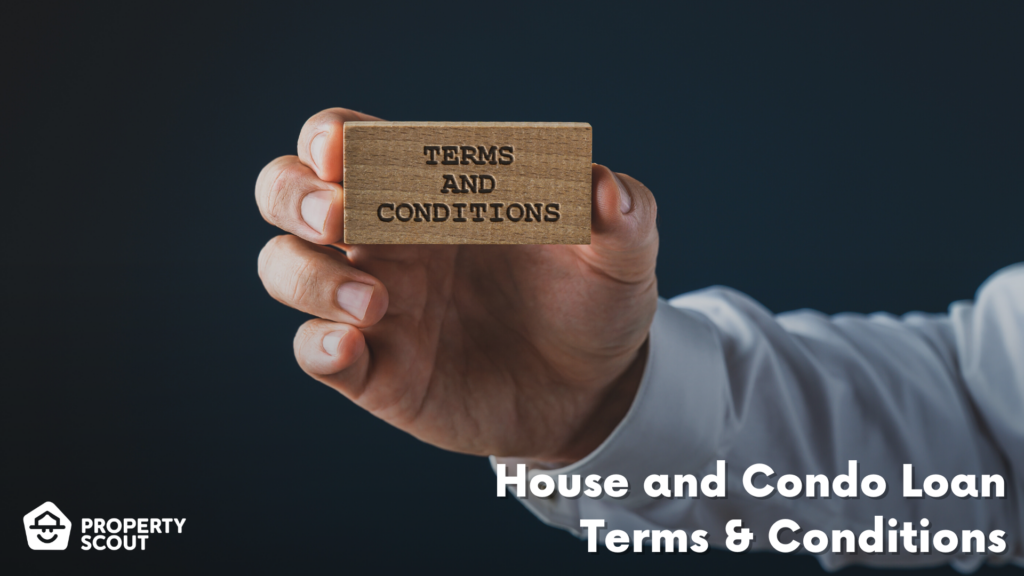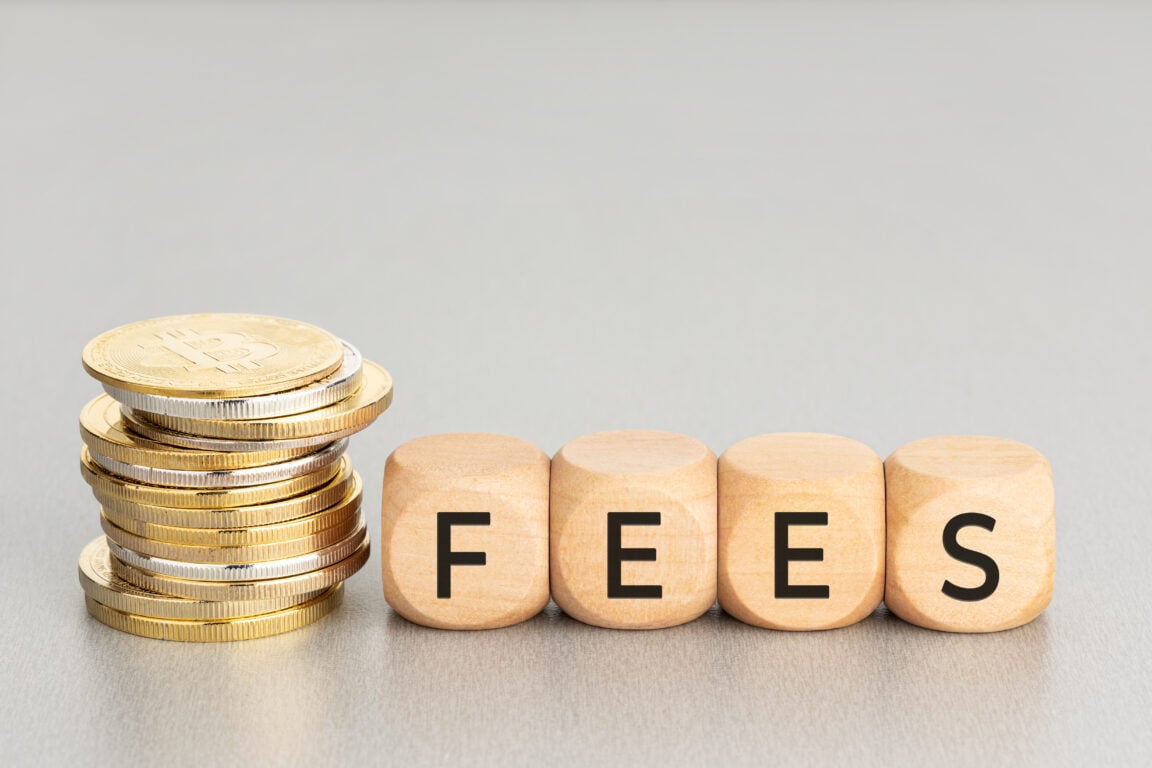Understanding Home Loan Terms & Conditions for a Smoother Mortgage Journey


Buying a home is an exciting milestone, but navigating the intricate world of mortgages can often feel like deciphering a complex code. Fear not! In this blog post, we will unravel the mysteries surrounding those intimidating terms and conditions that accompany your dream home financing. Get ready to demystify the jargon, gain clarity on crucial aspects, and embark on a smoother mortgage journey. By the end of this guide, you'll feel empowered and equipped with the knowledge to make informed decisions, securing the keys to your new abode with confidence. Let's dive in and unlock the secrets to a successful home loan experience!

**Note that these terms and conditions only apply to Thai nationals, while foreigners have the option to guarantee-co-sign
Before you delve into the terms and conditions, make sure you understand the home loan terms first
Are you feeling overwhelmed by the sea of complex terminology used in the world of loans? If so, you're not alone. Many people have questions when it comes to understanding the jargon commonly encountered in financial institutions. That's why PropertyScout is here to guide you through the maze of loan terms and phrases. In this blog post, we'll break down the meaning behind frequently used terms such as "bank appraisal value," "loan processing fee," "collateral appraisal fee," and "credit life insurance for loan protection." Plus, we'll shed light on popular phrases like "100% financing" and "90% financing." By the end of this post, you'll have a clear understanding of these concepts, empowering you to make informed decisions on your loan journey. Let's dive in and unlock the secrets of loan terminology together!
What is Bank Appraisal Value?

When it comes to securing a loan, two key factors come into play: the "purchase agreement price" and the "appraisal value from the bank." These factors hold significant importance in the loan process. To ensure a fair assessment, banks consider the lower of the two figures as the basis for the loan amount. This approach guards against potential overvaluation or undervaluation of the property. To achieve this balance, the bank includes an appraisal value in the loan assessment criteria.
The bank's appraisal value can be determined by their in-house appraisal unit or through collaboration with an appraisal company. The initial evaluation criteria are derived from the appraisal price established by the Department of Lands, which examines the property's condition in its specific location. The bank's appraisal value is typically categorized into three types: land appraisal value, building appraisal value, and condominium/apartment appraisal value.
What is Loan Processing Fee?

When you apply for a bank loan, you may come across a fee known as the "Loan Processing Fee," a crucial component of the loan conditions. This fee represents the amount charged by the bank for analyzing and managing your loan application. It's important to note that the Loan Processing Fee can vary from bank to bank, resulting in different rates for borrowers. Typically, this fee is calculated as a fixed percentage of the loan amount, typically ranging from 0% to 1%.
What is Collateral Appraisal Fee?

When it comes to securing a home loan, townhouse, condominium, or even a commercial building, one crucial step in the process is collateral evaluation. This evaluation involves a fee known as the "Collateral Appraisal Fee," which serves as the foundation for the bank to determine the loan amount and grant approval. The Collateral Appraisal Fee is contingent upon the assessed value of the property being used as collateral and the requested loan amount. It's important to note that a higher-valued collateral or a larger loan amount will result in a proportionately higher Collateral Appraisal Fee. Typically, the appraisal process incurs a cost ranging from 1,500 to 2,500 Baht, although specific fees may be set by each individual bank.
What is Credit Life Insurance for Loan Protection? Is it necessary?

Many individuals often confuse the differences between home insurance, fire insurance, and credit life insurance for residential properties. It's important to understand the necessity of these insurance policies. Firstly, it's crucial to clarify that credit life insurance for home loans, also known as Mortgage Reducing Term Assurance (MRTA), is distinct from home insurance.
Credit life insurance, particularly MRTA, is a policy frequently offered by banks as a loan requirement for those applying for a home loan. It is often presented as an additional option during the loan application process. One of the advantages of obtaining MRTA is the potential for a reduced interest rate on the loan.
In terms of protection, borrowers have the option to choose full coverage of 100% of the loan amount or partial coverage, such as 70% or 80% of the loan amount. However, if borrowers choose coverage that is less than the full loan amount, in the event of their death, the insurance coverage may not be sufficient to cover the entire debt. Borrowers can also choose the coverage duration according to the loan agreement or specific periods. For example, for a 30-year loan agreement, borrowers can opt for a 10-year or 15-year MRTA policy. It is important to consider whether the remaining debt burden after the insurance coverage period ends will cause difficulties for beneficiaries.
Nevertheless, the decision to purchase MRTA insurance is at the discretion of the borrower. It is not a requirement set by the bank for the loan. Borrowers can evaluate the necessity of MRTA insurance based on their risk assessment, along with their savings and other life insurance policies. However, it should be noted that opting for MRTA insurance may result in a lower interest rate on the loan, depending on the loan conditions.
Loan Eligibility: 100% vs 90% - What Does It Mean? How Is It Calculated?

For most individuals looking to purchase a home, securing a substantial loan amount from a bank is a common objective. However, it's important to understand that not everyone can borrow 100% or 90% of the total loan value. If you're new to the world of home loans or feeling a bit bewildered, don't worry. PropertyScout is here to shed some light on the matter."
"First and foremost, it's crucial to recognize that different types of real estate loans come with their own set of 'loan conditions' that dictate the amount banks are willing to lend. Typically, loans for houses, townhouses, and condominiums are approved for approximately 80-100% of the property's value. The second category, which includes commercial buildings and shop houses, usually qualifies for loans ranging from 70-90% of the property's value. Lastly, for those looking to purchase vacant land, loans of around 60-70% of the land's value are commonly granted."
"The loan-to-value ratio of 80-100% is determined by the bank's specific loan conditions, which calculate the loan amount based on the property's valuation. Banks typically consider two sources for valuation: the appraised value and the price stated in the sales agreement. The lower value between these two sources is used to determine the approved loan amount.
What are the conditions for obtaining a 100% loan amount?

A 100% loan amount refers to the maximum loan-to-value ratio that a bank approves, typically ranging from 90% to 100% of the property price that the borrower applies for. For example, if the property price is appraised at 1,000,000 Baht, the bank would offer a loan amount between 900,000 and 1,000,000 Baht (based on either the appraised value or the price from the sales agreement).
- Loan conditions for obtaining a 100% loan amount
Generally, banks approve a 100% loan amount for properties with appraised values higher than the market purchase price or for projects developed by leading real estate companies listed on the stock market, in partnership with the bank. These prominent companies often offer the opportunity for borrowers to obtain a 100% loan after purchasing their projects.
- The conditions for obtaining beyond the 100% loan amount or the characteristics of a contract with 2 buy-sell contracts
Another condition for borrowing is when purchasing a house priced at 5,000,000 baht, but the project has a purchase agreement at 6,000,000 baht with an attached discount of 500,000 baht. The actual transaction takes place at a price of 5,500,000 baht. The borrower can consult with the project developer whether to apply for a loan based on the discounted price of 5,500,000 baht or the purchase agreement price of 6,000,000 baht. In the case of projects from leading real estate companies, the valuation is often based on the purchase agreement price provided by the project developer. This means that the borrower can obtain a loan amount equal to or greater than 100%.
However, for borrowers who receive a loan amount less than 100%, which could be 80-90%, it may be due to factors related to the borrower's qualifications or insufficient collateral value.
In the case of collecting mortgage fees and closing the account before 5 years, what are the loan conditions?

In the case of home loans, borrowers are required to pay a mortgage registration fee at a rate of 1% of the approved loan amount. However, some banks provide an option for borrowers to waive the mortgage registration fee if they have mortgage life insurance coverage, such as MRTA. If borrowers choose the condition that exempts them from the mortgage registration fee, they must close the loan account after 5 years. If the account is closed before 5 years, the bank will charge a fee for the mortgage registration, calculated based on the approved loan amount. For example, if the approved loan amount is 1,000,000 Baht and the borrower closes the account before 5 years, the bank will charge a mortgage registration fee of 10,000 Baht.
What conditions might borrowers encounter for each loan type?
Understanding common Home Loan Terms & Conditions is important, but don't forget that different banks may have varying requirements. Explore and grasp the specifics of each loan format for a better borrowing experience.
Example of "General Home Loan Application" conditions:
Let's say someone wants to borrow 1,200,000 Baht to purchase a residential property, but the property has a discounted price of 1,000,000 Baht, and the borrower wishes to borrow more than the actual price. They have reached an agreement with the project developer on a purchase agreement price of 1,200,000 Baht. The loan outcome can be divided into two scenarios:
- In Case of Bank Appraising the Property Higher than the Purchase Agreement Price
When the bank appraises the property and finds that its value is higher than the purchase agreement price, for example, the bank appraises it at 1,500,000 baht while the purchase agreement price is 1,200,000 baht, the bank will use the lower value. This means that the maximum loan amount the borrower can receive is not more than 1,200,000 baht.
- In the case where the bank appraises the property at a lower value than the purchase agreement price
In the case where the purchase agreement is valued at 1,200,000 baht, but the bank appraises the property at a lower value, for example, 1,000,000 baht, the bank will adhere to the lower appraised value. This means that the maximum approved loan amount by the bank will not exceed 1,000,000 baht.
Conclusion
In conclusion, navigating the world of home loan terms and conditions can seem daunting, but with a solid understanding of the key elements, you can embark on a smoother mortgage journey. From interest rates and loan-to-value ratios to repayment options and additional fees, being well-informed empowers you to make confident decisions. Remember to carefully review and compare offers from different banks, seeking clarification when needed. By familiarizing yourself with the intricacies of home loan terms and conditions, you can ensure a more seamless and rewarding experience as you embark on the exciting path to homeownership.
Find your ideal property, available for sale or rent in the best prices possible, or list your property for sale or rent here. Alternatively, if you have any further questions, please get in touch with us:



